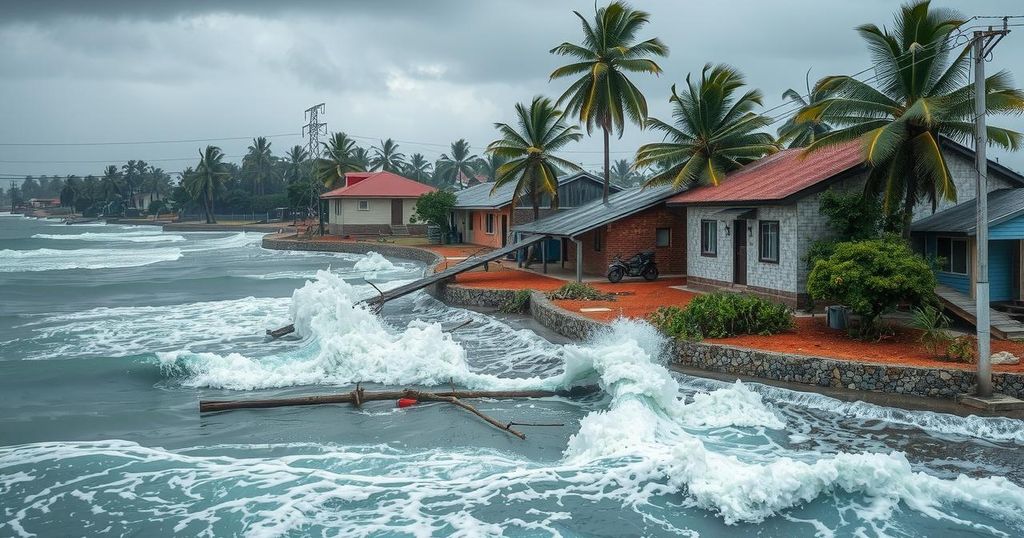Cyclone Dikeledi Causes Tragedy in Madagascar, Affecting Thousands

Tropical Cyclone Dikeledi has claimed three lives and displaced over 5,000 people in Madagascar. The storm is now moving southwest after crossing the Mozambique Channel. Mayotte, a nearby French territory, experienced minimal damage, while relief efforts continue to monitor the situation in Madagascar. This event follows significant devastation from Cyclone Chido just weeks prior, emphasizing ongoing vulnerabilities to tropical storms in the region.
Tropical Cyclone Dikeledi has tragically resulted in the deaths of three individuals in Madagascar and has compelled over 5,000 residents to evacuate their homes, as confirmed by the International Federation of Red Cross and Red Crescent Societies (IFRC) and the National Office for Risk and Disaster Management (BNGRC). The storm passed through the Mozambique Channel and is currently advancing southwest of Madagascar, where it is anticipated to encounter worsening weather conditions despite having no immediate impact on the area.
Although it approached the French territory of Mayotte, authorities issued a red alert, warning residents to remain indoors. Fortunately, damage in Mayotte was reported to be minimal, with only minor flooding and some disruptions to daily life. Emergency response teams, including local Red Cross units, are actively monitoring the storm’s trajectory and have advised communities to heed safety recommendations to reduce risks.
This recent cyclone follows the devastation caused by Cyclone Chido less than a month ago, which struck on December 14, 2024, affecting both Mayotte and Madagascar. Cyclone Chido resulted in at least 35 confirmed fatalities, around 2,500 injuries, and the displacement of up to 100,000 individuals, highlighting the ongoing vulnerability of the region to severe weather events. In the aftermath of Cyclone Chido, French President Emmanuel Macron visited Mayotte and was briefed on the extensive infrastructure damage that severely obstructed rescue and relief operations, with local authorities cautioning that the death toll could continue to rise.
The region of Madagascar has been significantly impacted by severe weather events, particularly tropical cyclones, leading to devastating consequences for its inhabitants. Cyclone Dikeledi is the latest of such disasters, which escalates the ongoing humanitarian crises the region faces. Traumatic impacts from prior storms, including Cyclone Chido, demonstrate the vulnerabilities and challenges in disaster response, especially in areas that experience frequent cyclonic activity. The proactive measures taken by local authorities, alongside the Red Cross, aim to mitigate these impending risks and provide necessary aid during such emergencies.
In conclusion, Cyclone Dikeledi’s recent impact on Madagascar has underscored the ongoing challenges posed by natural disasters in this region, resulting in fatalities and extensive displacement. The collaboration between local authorities and organizations such as the Red Cross highlights the critical need for effective disaster response strategies and community awareness initiatives. The aftermath of Cyclone Chido further amplifies the urgent need for resilience and recovery efforts following recurrent cyclonic disturbances.
Original Source: www.aa.com.tr






